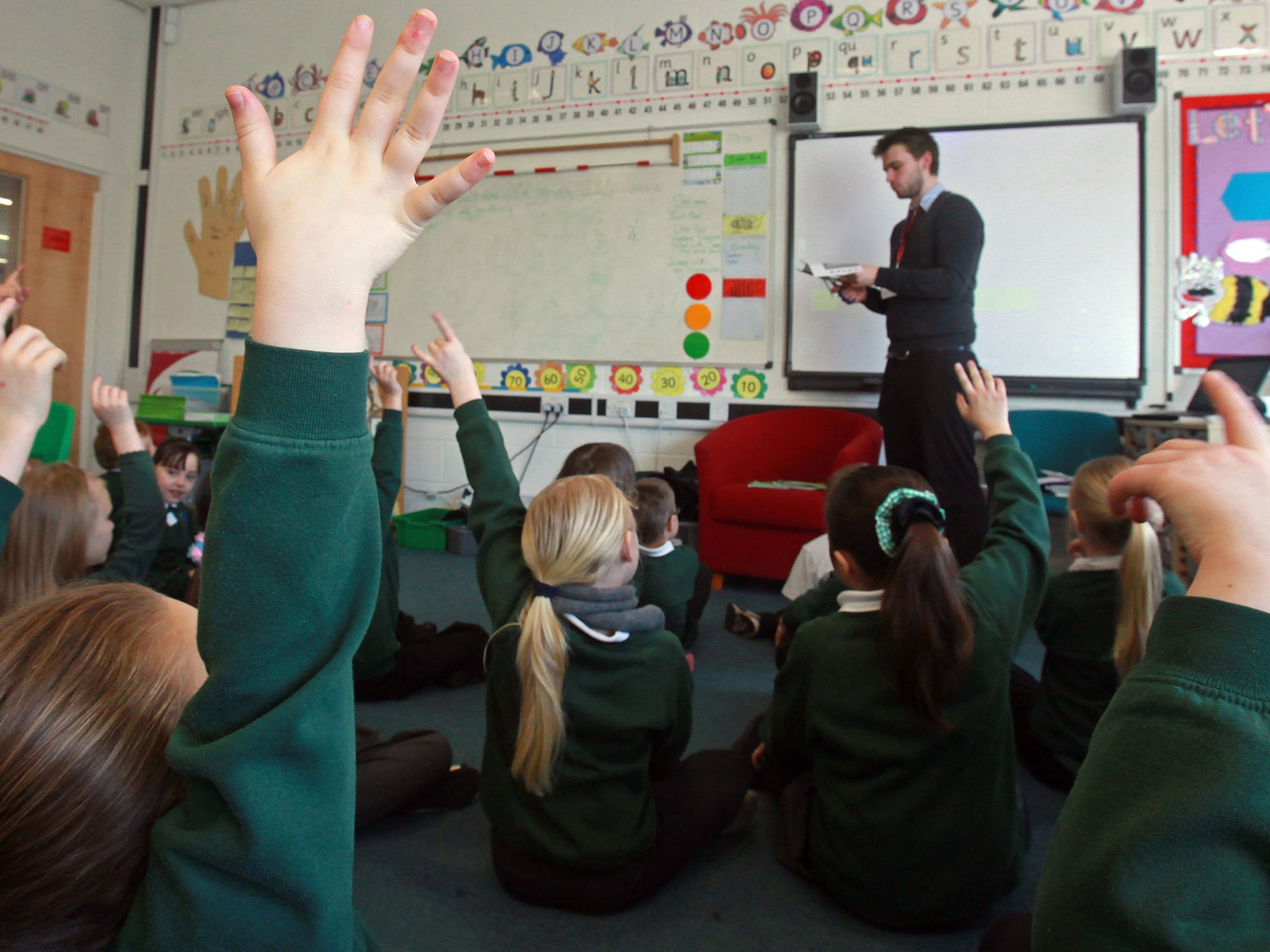Primary school pupils to be taught about 'world of work' under new initiative
Ministers believe the new scheme will be particularly relevant in communities with high adult unemployment

Your support helps us to tell the story
From reproductive rights to climate change to Big Tech, The Independent is on the ground when the story is developing. Whether it's investigating the financials of Elon Musk's pro-Trump PAC or producing our latest documentary, 'The A Word', which shines a light on the American women fighting for reproductive rights, we know how important it is to parse out the facts from the messaging.
At such a critical moment in US history, we need reporters on the ground. Your donation allows us to keep sending journalists to speak to both sides of the story.
The Independent is trusted by Americans across the entire political spectrum. And unlike many other quality news outlets, we choose not to lock Americans out of our reporting and analysis with paywalls. We believe quality journalism should be available to everyone, paid for by those who can afford it.
Your support makes all the difference.All children will be taught about the world of work by the time they leave primary school, according to a new initiative unveiled this week by the Government.
Under the proposals, information and talk about future careers will be included in the primary curriculum, and teachers will be expected to act early to help pupils make clear connections between reading, writing and arithmetic and obtaining a decent job in the future.
Ministers believe the new initiative will be particularly relevant in communities with high adult unemployment as part of wider effort to end the cycle of benefit dependency.
However, teaching unions have expressed some concern over the plan, questioning whether careers talks for children aged 11 are a case of “too much, too soon”.
The proposals were laid out on Thursday in a speech to the Westminster Employment Forum in London by Sam Gyimah, the education and childcare minister.
He said he wanted to ensure that all schools had the expertise in place to ensure that all children, regardless of their background, had “the information, exposure and support to make the right choices and to fulfil their potential”.
Mr Gyimah said this process should start before children reached secondary school, where careers advice traditionally began.
“By the end of primary school, this means developing an emerging awareness that people have different jobs and a belief that in the future they will work,” Mr Gyimah said.
“This is particularly important for children from workless households. It means making a connection between what is taught in school and what career paths they will take in the future.”
“This understanding contributes to a motivation to do well, based on realising the importance of basic skills.”
Join our commenting forum
Join thought-provoking conversations, follow other Independent readers and see their replies
Comments